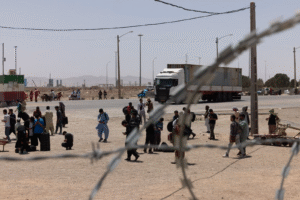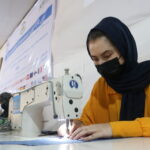The United Nations Children’s Fund (UNICEF) and the United Nations Educational, Scientific and Cultural Organization (UNESCO) have announced that since the Taliban’s return to power in August 2021, the de facto authorities of Afghanistan have deprived around 2.2 million adolescent girls of education.
In a joint report on the state of education in Afghanistan, the organizations stated that each school year, an estimated 397,000 children drop out and are unable to continue their studies.
According to the report, by 2024, more than 2.13 million primary school–aged children were out of school, 60 percent of whom are girls.
The report further notes that Afghanistan’s education sector is under immense pressure due to multiple, simultaneous humanitarian shocks.
It adds that by 2025, an estimated 8.9 million children, including 888,000 children with disabilities, will require emergency education support.
At the same time, around 2.7 million Afghans have been expelled from Iran and Pakistan since 2023, and 40 percent of them are children.
The report highlights that many of the returning children, especially girls over the age of 12, face serious difficulties enrolling in schools due to a lack of infrastructure and existing restrictions.
UNICEF and UNESCO warn that the return of migrants is placing additional strain on Afghanistan’s education system and increasing the number of children and adolescents out of school.
The report also states that since taking control of Afghanistan, the current authorities have banned women and girls from education. In their latest restriction, they closed medical institutes to female students, even as the health sector faces severe staff shortages.
This policy has resulted in millions of school-aged girls being denied education.
In addition, women have been banned from going to gyms, restaurants, public baths, receiving medical care from male doctors, traveling without a male guardian, and working with domestic and international NGOs, as well as in UN offices across Afghanistan.













